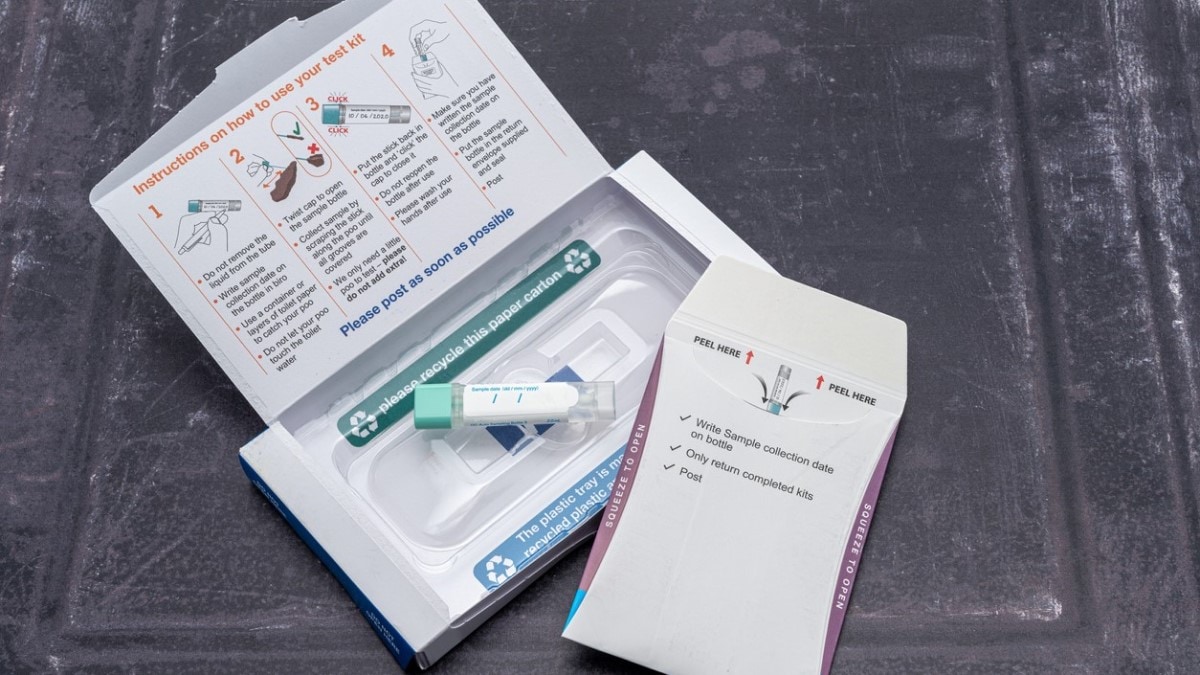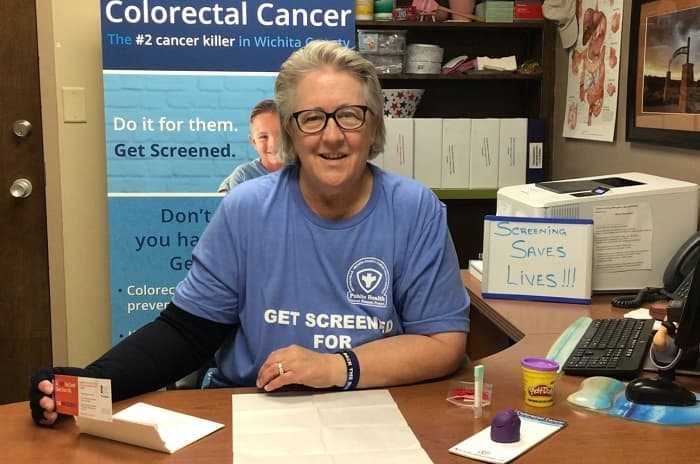Key points
Thanks to a new voucher program, residents of northern Texas with low incomes can get lifesaving colorectal cancer screening tests.

Overview

Wichita County, Texas, has a high rate of colorectal cancer deaths. Only about 2 in 3 adults in Wichita County who are eligible for screening are up to date with colorectal cancer screening. The number is even lower for residents with low incomes. Many can't afford to get screened or don't have transportation to a clinic.
The Wichita Falls-Wichita County Public Health District is a sub-award recipient of CDC's National Comprehensive Cancer Control Program. It partnered with the Moncrief Cancer Institute in Fort Worth to give colorectal cancer screening vouchers to patients with low incomes. The goal is to find the disease early when treatment works best.
Eligible patients receive free fecal immunochemical test (FIT) kits and follow-up colonoscopies for any positive FIT results. All screening and testing is covered by Moncrief. The health district works with local health systems and businesses, like pharmacies, to give out the vouchers.
Mailed vouchers encouraged testing during pandemic

The health district and Moncrief gave out FIT kit vouchers from March 2018 to March 2021. They also mailed vouchers to low-income households from June to December 2020 to encourage people to continue FIT kit testing during the COVID-19 pandemic.
Of the 499 FIT kits requested from these vouchers, 203 people returned a completed FIT kit. Twenty people had a positive test result and were referred to a doctor for a colonoscopy and follow-up care.
"The program is successful because it's easy for folks to use the at-home test kit," said Karel Davis, program director of the Wichita Falls-Wichita County Public Health District. "It's free and accessible. Most people seem eager to want to take this path."
New partners will expand reach of vouchers
The health district is working to involve more organizations in the program. Community partners can help identify more people who are eligible to receive the screening vouchers, which will broaden the reach of the program.
“This community-wide collaboration is a sustainable project for years to come,” said Davis. “Perhaps it will be so effective that colorectal cancer deaths will be zero. That’s our fervent hope.”
By making screening accessible, the health district can reduce cancer deaths in Texas.
